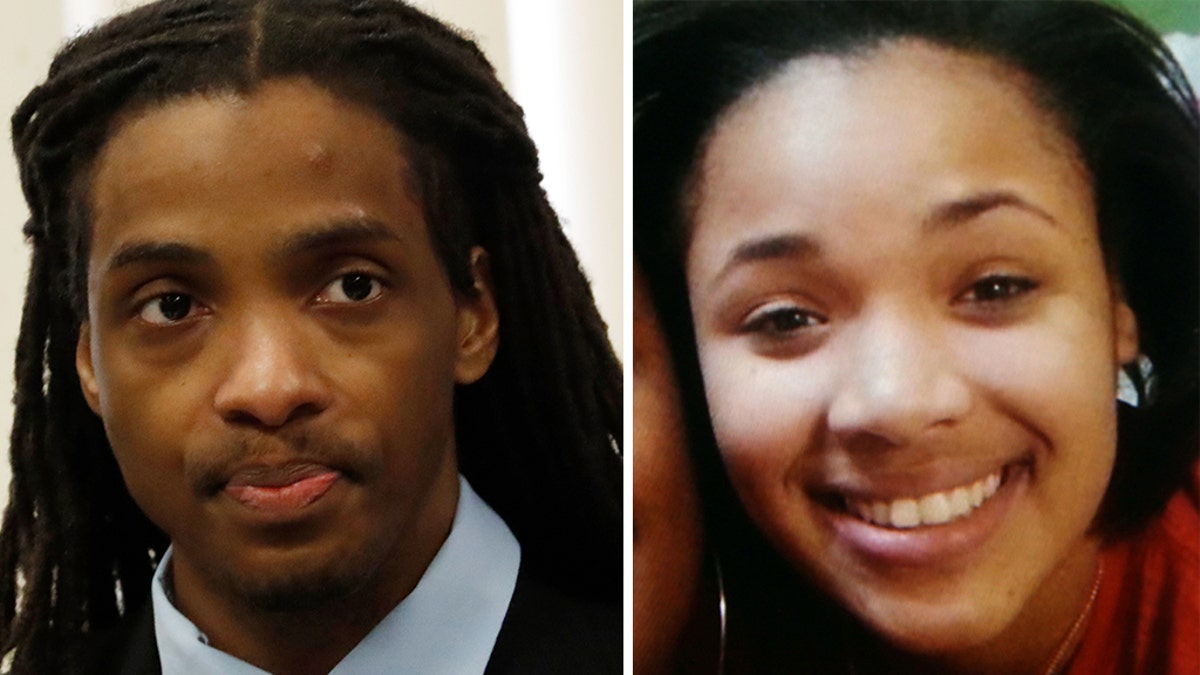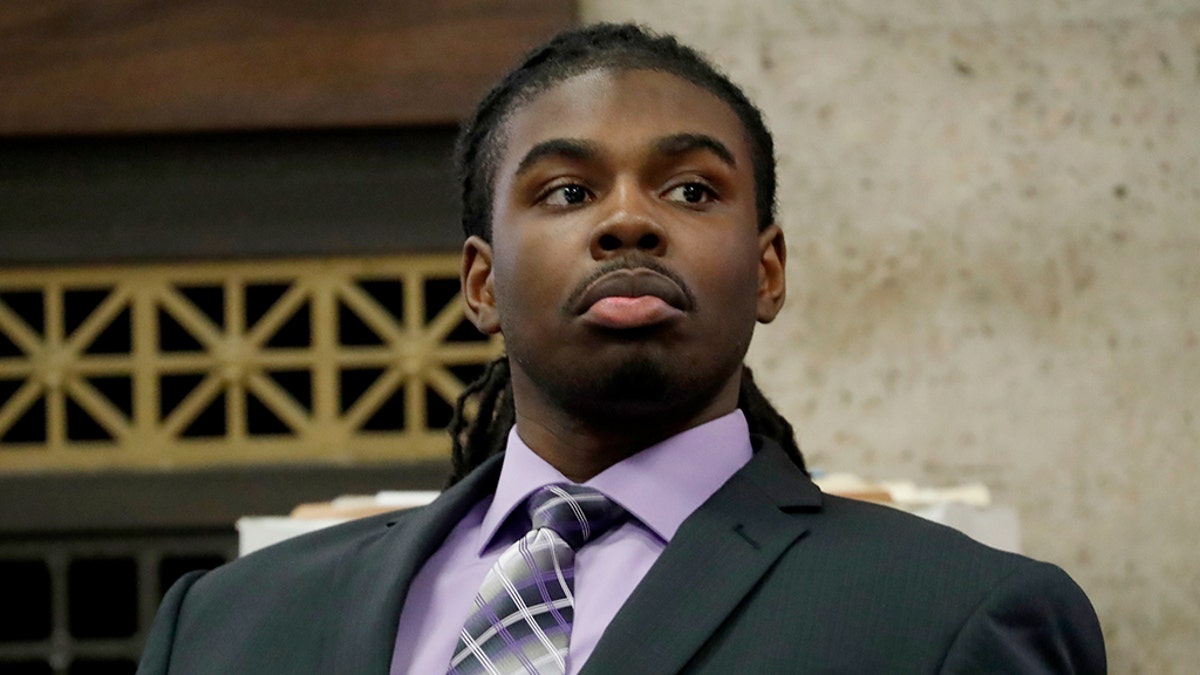
A jury convicted Kenneth Williams in the 2013 murder of Hadiya Pendleton. (AP, ZUMAPress, File)
CHICAGO – A getaway driver and reputed gang member charged in the 2013 killing of a 15-year-old high school honors student in Chicago was found guilty Wednesday of first-degree murder, in a case that brought national attention and shed light on the city's gun violence crisis.
Prosecutors said Kenneth Williams, 25, was behind the wheel the afternoon Hadiya Pendleton was shot to death as she and several of her classmates went to a public park after final exams.
In closing arguments, Cook County Assistant State’s Attorney Brian Holmes told jurors Williams was just as culpable in Pendleton’s death as alleged shooter Micheail Ward, whose trial is ongoing.
“Williams is responsible and accountable for his own actions as well as responsible and accountable for the actions of Ward," he said. "In the eyes of the law his hand is on that trigger."

The trial of the alleged shooter, Micheail Ward, is ongoing. (AP, File)
Pendleton, an honors student and drum majorette at King College Prep High School, had performed a week earlier at President Barack Obama’s inauguration festivities. First lady Michelle Obama attended Pendleton’s four-hour funeral in February 2013. Pendleton’s death resonated well beyond Chicago and she became a national symbol of senseless gun violence.
Two separate juries were impaneled to hear the cases against Ward and Williams. The juries were swapped in and out of the courtroom as evidence was offered in one case or the other.
Williams' lawyer, Matthew McQuaid, argued that jurors should not be swayed by emotion.
McQuaid said many prosecution witnesses were under pressure to testify, making their testimony unreliable.
"They're saying whatever they have to say to get out of the police station," he argued.
Some of the witnesses who testified at the trial disputed their previous grand jury testimony in which they implicated the two suspects.
Prosecutors presented a video recording of Ward confessing to police. Early on, Ward could be seen denying shooting into the park as a detective accused him of lying. At one point, Det. John Murray reminded Ward that the first lady had attended Pendleton's funeral. An attorney for Ward, Gina Piemonte, noted how detectives raised their voices, swore and occasionally got physically close to Ward.
Williams' lawyer called one witness in his defense. Gang expert Lance Williams contended police had no evidence proving the shooting was gang-related.
Lawyers for Ward completed their case as the jury that heard the case against Williams deliberated. After the defense rested and the jury was excused, the presiding judge asked Ward if he would testify on his own behalf.
"Nah, I'm not going to testify," he answered.
During the trial, prosecutors told jurors what has become a familiar story in Chicago: Gang feuds that turn deadly when members of one rival gang open fire, not worried about anybody else, not children riding their bikes, people sitting on their porches or, on this day, high school students sitting in a park laughing and talking with each other after final exams.
As if to underline their point, the trial began the same week in which bullets fired in two neighborhoods pierced two homes, one finding and killing a woman as she sat on her couch and the other injuring a woman while she slept in her bed.
The Associated Press contributed to this report.







































